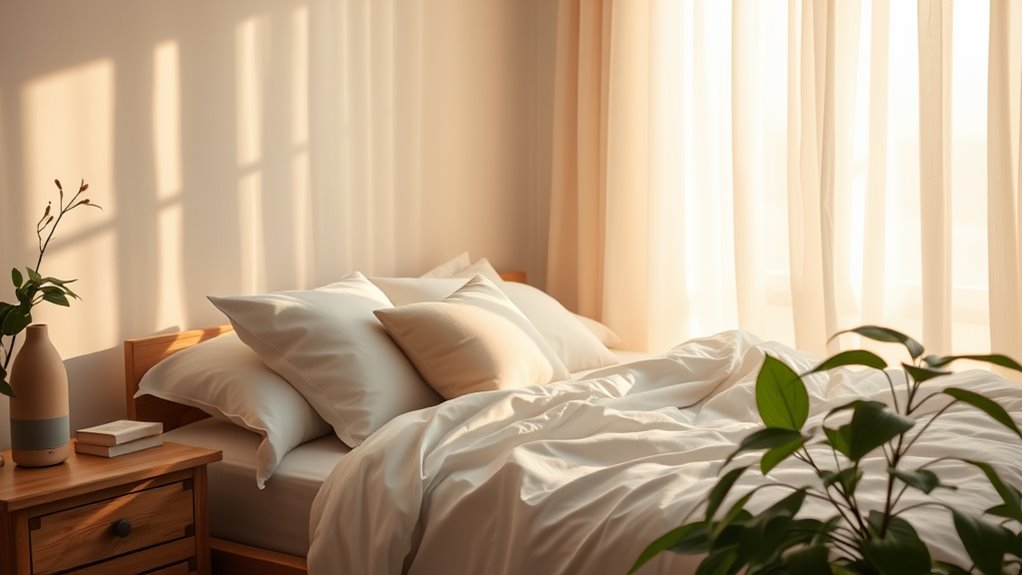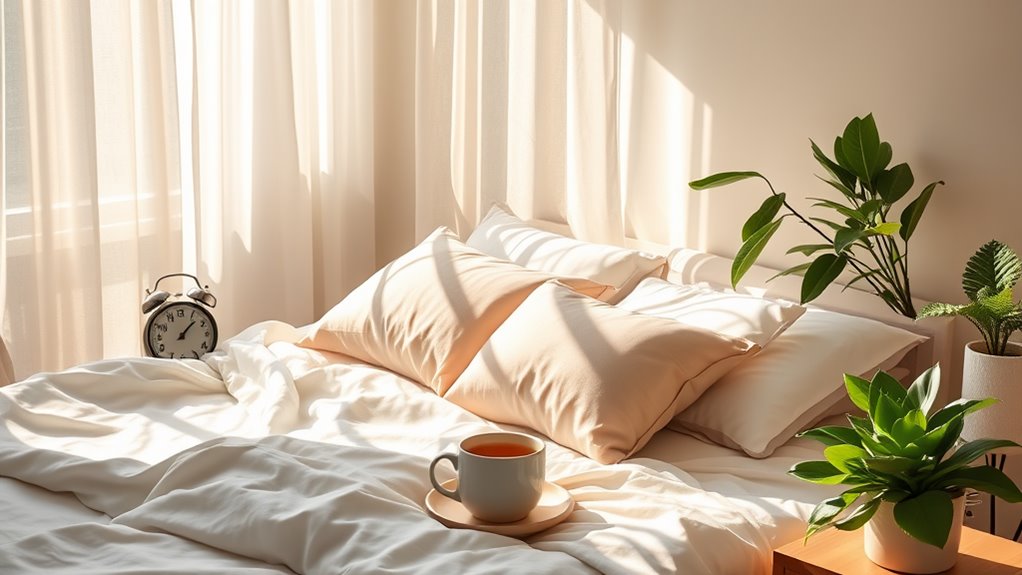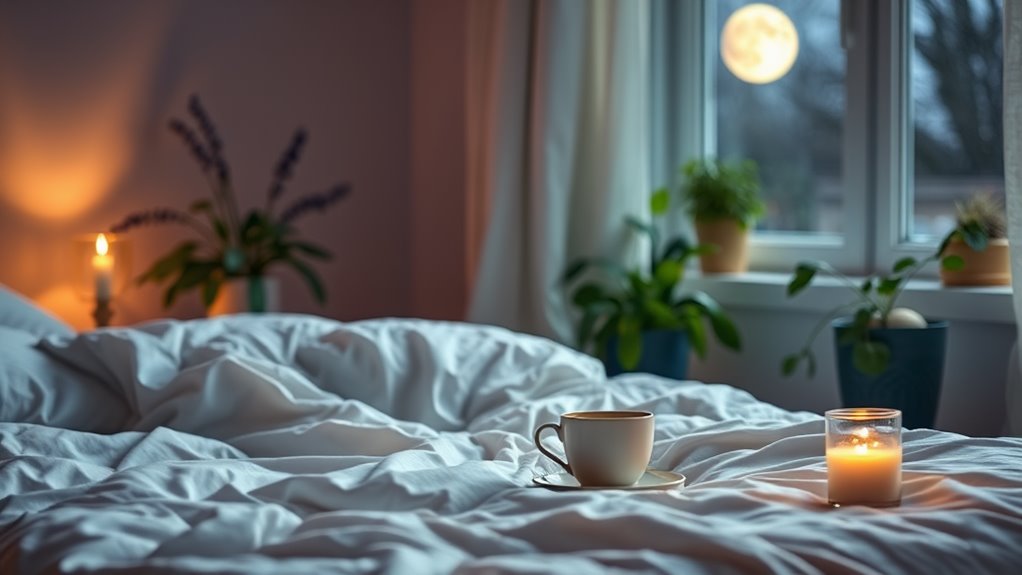The Secret to Deep Sleep That No One Talks About!
Have you ever wondered why you struggle to achieve deep, restorative sleep despite attempting various methods? The truth is, many people overlook natural enhancers and mindful practices that can truly make a difference. From specific supplements to effective breathing techniques, there are nuanced approaches that can transform your sleep experience entirely. Curious about what truly reveals the secret to that elusive deep sleep? Let’s explore this further.
Understanding the Science of Deep Sleep
Understanding the science of deep sleep is essential for anyone wanting to improve their overall health and well-being. When you immerse yourself in deep sleep, your body undergoes crucial repair processes, supporting growth and immune function.
You mightn’t realize that the stages of sleep work synergistically, and skipping deep sleep means missing out on these benefits.
To enhance your journey into deep sleep, consider the best natural deep sleep enhancer options available. Herbs like valerian root and passionflower, or minerals such as magnesium, have been known to promote deep relaxation and facilitate your change into this restorative phase. Additionally, incorporating the 4-7-8 breathing method can significantly improve your ability to fall into deep sleep.
Creating a sleep sanctuary at home can amplify these effects, providing a peaceful environment that encourages deep sleep.
As you embrace this knowledge, you’ll find a sense of belonging to a community seeking better rest and health, ultimately leading you to a more vibrant and energized life.
Lifestyle Adjustments for Enhanced Rest
To enhance your rest, making a few key lifestyle adjustments can have a profound impact on your sleep quality.
Start by establishing a consistent sleep schedule; going to bed and waking up at the same time each day helps regulate your body’s internal clock.
Create a calming bedtime routine that signals to your mind and body that it’s time to wind down. This can involve reading, gentle stretching, or even enjoying a warm beverage (just skip the caffeine!).
Limit screen time before bed, as the blue light from devices can interfere with melatonin production.
Also, consider your sleeping environment—keep your bedroom dark, quiet, and cool.
Finally, prioritize physical activity during the day; it promotes better sleep at night. Additionally, optimizing your sleep environment can significantly contribute to achieving deeper sleep and more energized mornings.
Natural Remedies That Promote Sleep Quality
What if there were simple, natural remedies that could help you drift off to sleep more easily?
You’re not alone in searching for ways to enhance your sleep. Many find comfort in nature’s offerings, which can be a part of your nightly routine.
Here are a few remedies that might resonate with you:
- Chamomile tea: A warm cup can relax your mind and body.
- Lavender essential oil: A few drops on your pillow may promote relaxation.
- Magnesium-rich snacks: Foods like almonds or banana can soothe your nerves.
- Valerian root: This herbal supplement may support deeper sleep.
- Breathing exercises: A few minutes can ground your thoughts before bed. Additionally, incorporating the “4-7-8 method” can naturally trigger your body’s relaxation response, making it easier to fall asleep.
Creating the Perfect Sleep Environment
While you might’ve your go-to nighttime rituals, creating the perfect sleep environment is essential for a restful night’s sleep. Start by decluttering your bedroom. A tidy space promotes peace and relaxation, inviting you to unwind.
Next, invest in blackout curtains to block out disruptive lights; dark spaces signal your body that it’s time to sleep.
Ensure your room is cool—around 60-67°F is ideal. A comfortable temperature helps you fall asleep faster and stay asleep longer.
Choose calming colors for your walls and bedding, as they create a soothing atmosphere.
Adding personal touches, like favorite photos or soft lighting, can make the space feel more inviting.
Finally, consider sound—white noise machines or gentle music can mask disruptive noises.





